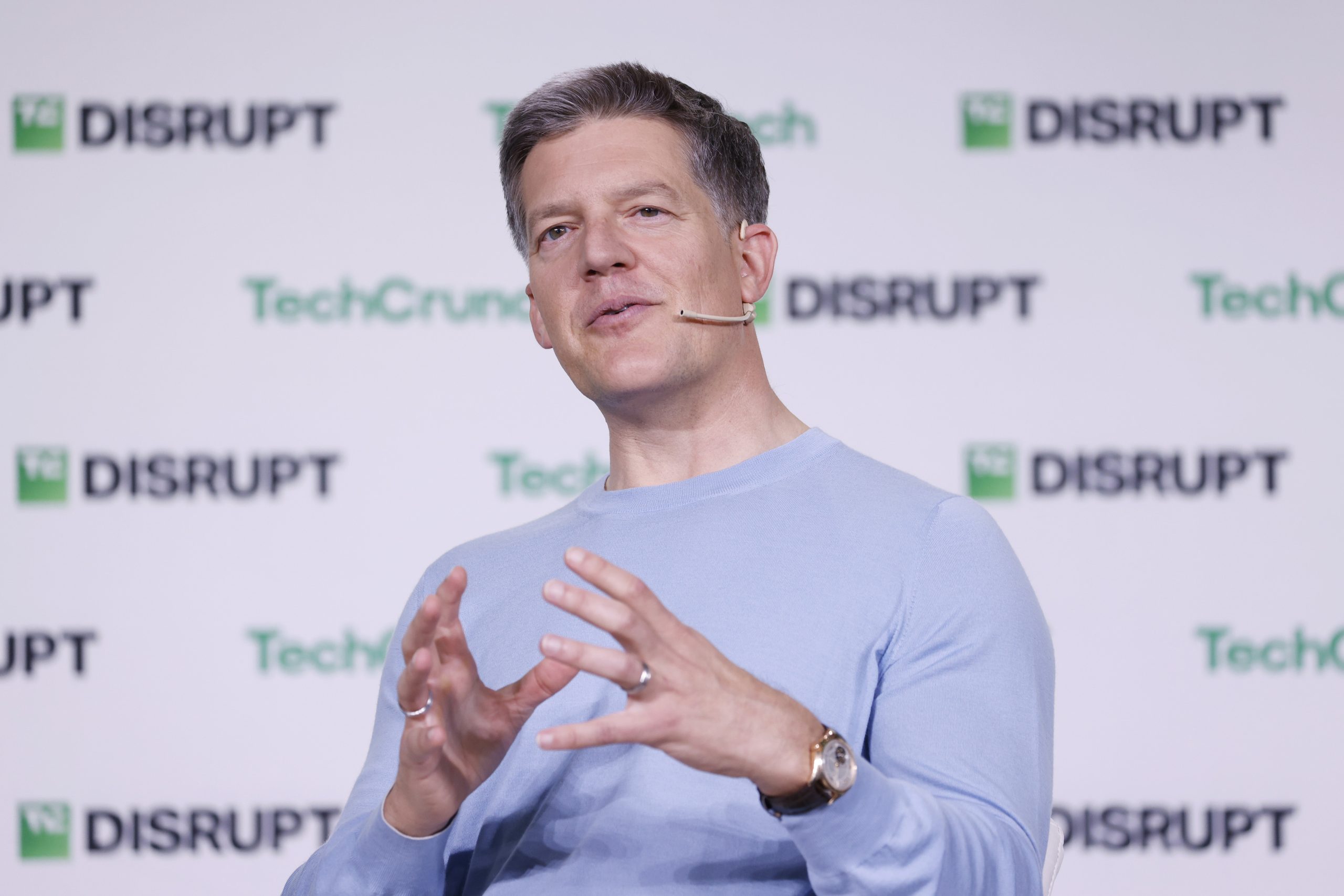
The landscape of venture capital and startup innovation is currently navigating a confluence of unprecedented factors, from escalating government involvement in private enterprise to a volatile market that echoes the excesses of past funding booms. At the heart of this complex discussion is Roelof Botha, the global steward of legendary venture capital firm Sequoia Capital, who recently offered a sobering assessment and strategic guidance to founders at TechCrunch Disrupt in San Francisco. His insights underscored a growing discomfort within the investment community regarding state-backed equity and a persistent warning against the allure of unsustainable, inflated valuations.
The State’s New Role in Private Enterprise
A significant shift in economic policy is unfolding, with the United States government increasingly taking direct equity stakes in American companies. This move departs markedly from previous interventions, such as the temporary crisis measures enacted during the 2008 financial crisis under the Troubled Asset Relief Program (TARP), which primarily involved loans and warrants rather than permanent equity positions. The current approach, initiated by the Trump administration and continuing to be debated and deployed across political lines, is framed as a long-term fixture of industrial policy, designed to strategically bolster key domestic industries.
This new paradigm immediately raises complex questions for founders and investors alike. What are the implications when the White House becomes a stakeholder in a private company? Beyond the immediate capital injection, government ownership introduces a layer of political consideration and potential bureaucratic influence that can fundamentally alter a company’s strategic direction, governance, and market perception. The very notion challenges the traditional boundaries between state and private enterprise, a boundary long cherished by proponents of free-market capitalism.
A Clash of Ideologies: Free Markets vs. Industrial Policy
Botha, openly identifying as a "libertarian, free market thinker by nature," did not mince words regarding his apprehension. His quip, "One of the most dangerous words in the world are: ‘I’m from the government, and I’m here to help,’" resonated with knowing laughter from the audience, highlighting a shared skepticism within the tech community about government overreach. Historically, the U.S. economy has thrived on a model emphasizing private innovation, minimal state interference, and open competition. However, geopolitical realities are now compelling a re-evaluation of this stance.
Botha conceded that industrial policy has a legitimate role when national interests are at stake. He articulated the pragmatic necessity: "The only reason the U.S. is resorting to this is because we have other nation states with whom we compete who are using industrial policy to further their industries that are strategic and maybe adverse to the U.S. in long term interests." This directly references the strategic competition with countries like China, where state-led investment and industrial planning have long been central to economic development and technological advancement in sectors deemed critical, such as semiconductors, artificial intelligence, and advanced manufacturing. The U.S. response, therefore, can be seen as a defensive maneuver, an attempt to level the playing field and protect its strategic industries from foreign dominance.
While the aim is to foster domestic competitiveness and national security, the implementation of industrial policy carries inherent risks. Critics argue it can lead to market distortions, inefficient allocation of capital, and potential for political favoritism, often dubbed "crony capitalism." It can also create an uneven playing field for companies not receiving state backing and potentially stifle the very innovation it seeks to promote by introducing government bureaucracy into agile startup environments. The long-term economic and cultural impact of the government as a permanent co-investor remains a subject of intense debate, posing a significant challenge to the traditional venture capital model that prioritizes agility, independence, and market-driven decisions.
The Perils of Sky-High Valuations
Beyond the complexities of government intervention, Botha expressed profound concern over the prevailing market dynamics, specifically the "valuation inflation" he observes. While refraining from using the loaded term "bubble," he diplomatically described the current period as one of "incredible acceleration." This acceleration, fueled by abundant capital and intense competition among investors, has propelled startup valuations to unprecedented heights, often detached from underlying fundamentals or sustainable growth trajectories.
This phenomenon is not new, but its recent manifestation bears troubling echoes of the "pandemic-era funding circus" that saw venture capital flood into technology companies between 2020 and 2021. During that period, propelled by historically low interest rates, digital transformation trends, and a surge in speculative investment, valuations soared at an unsustainable pace. Many companies raised multiple rounds at increasingly higher valuations in short succession, creating immense paper wealth for founders, employees, and early investors.
Botha shared a stark cautionary tale from Sequoia’s own portfolio: a company whose valuation skyrocketed from $150 million to an astonishing $6 billion in just twelve months during 2021, only to subsequently "come crashing back down to Earth." Such dramatic fluctuations create significant internal challenges. As Botha explained, "The challenge you have inside the company for the founders and the team, [is] you feel as though you’re on this trajectory, and then you end up being successful, but it’s not quite as good as you hoped at one point." This sentiment captures the demoralizing effect of watching a perceived fortune evaporate, impacting morale, retention, and the ability to attract future investment at previous peak valuations. The psychological toll on a team that believed it was on an exponential growth path, only to face a market correction, can be profound.
Strategic Guidance for Founders
In navigating these frothy and uncertain waters, Botha offered clear, actionable advice to founders, emphasizing prudence and strategic timing over opportunistic capital grabs. His guidance was two-pronged:
First, if a company does not require additional capital for at least the next twelve months, founders should resist the temptation to raise. "You’re probably better off building because your company will be worth so much more 12 months from now," he advised. This counsel prioritizes organic growth, product development, customer acquisition, and achieving sustainable metrics over simply extending runway. By focusing on fundamental business building, companies can achieve more robust valuations based on proven performance rather than speculative hype, positioning themselves more strongly for future funding rounds or strategic exits. This approach fosters resilience and reduces reliance on external market sentiment.
Conversely, for companies within six months of needing capital, Botha recommended raising funds immediately while money is still flowing. His rationale is rooted in the inherent volatility of the current market: "markets like the one we’re in can sour quickly." The rapid shifts in investor sentiment, macroeconomic conditions, and geopolitical events mean that today’s favorable funding environment can quickly become tomorrow’s capital drought. Securing capital proactively provides a critical buffer, ensuring operational continuity and strategic flexibility even if market conditions deteriorate.
To underscore his point, Botha, drawing on his classical education, invoked the ancient Greek myth of Daedalus and Icarus. "I did read the story of Daedalus and Icarus in Latin. And that stuck with me, this idea that if you fly too hard, too fast, your wings may melt." This powerful analogy serves as a timeless warning against hubris and excessive ambition. In the context of startup valuations, it cautions founders against chasing ever-higher numbers without sufficient substance, reminding them that unsustainable growth often precedes a precipitous fall. The allure of flying close to the sun – of achieving rapid, stratospheric valuations – can be intoxicating, but it carries the inherent risk of a painful descent.
Sequoia’s Enduring Investment Philosophy
When Roelof Botha speaks, the venture capital world listens, and for good reason. Sequoia Capital boasts an unparalleled track record, having made early-stage bets on companies that became industry titans like Nvidia, Apple, Google, and Palo Alto Networks. The firm’s enduring success is attributed to a disciplined, selective approach that has evolved over decades but remains anchored in fundamental principles.
Botha’s appearance at TechCrunch Disrupt also served as a platform to announce Sequoia’s latest commitment to early-stage innovation: two new investment vehicles, a seed fund and a venture fund, totaling $950 million. Significantly, Botha highlighted that these funds are "essentially the same size as the funds we launched six, seven years ago." This consistency in fund size, despite the exponential growth in overall venture capital deployment across the industry, underscores Sequoia’s deliberate strategy to maintain focus and avoid the pressure to deploy excessive capital, which can lead to diluted returns and less rigorous investment decisions.
In 2021, Sequoia famously restructured its primary fund into a single, continuously investing fund, moving away from the traditional fixed-term fund model. This innovative "Sequoia Fund" allows the firm to hold public stock for longer periods, providing greater flexibility to support portfolio companies through their entire lifecycle, from inception to IPO and beyond, without the pressure of fixed fund lifespans. Despite this structural evolution, Botha reaffirmed that Sequoia remains "very much an early-stage shop at its core." He noted that over the past twelve months, the firm invested in 20 seed-stage companies, with nine of those investments made at the point of incorporation. This deep commitment to partnering with founders "right at the beginning" is a hallmark of their strategy.
The Mammalian Approach to Venture Capital
Botha eloquently characterized Sequoia’s investment philosophy as "more mammalian than reptilian." This vivid metaphor explains their selective, high-touch approach. Unlike some venture firms that "lay 100 eggs and see what happens" (the "spray and pray" model), Sequoia focuses on a "small number of offspring, like mammals, and then you need to give them a lot of attention." This means meticulous due diligence, a highly selective investment process, and then deep, active engagement with their portfolio companies. The firm views itself as a true partner, providing strategic guidance, operational support, and access to a vast network of expertise.
This strategy is rooted in a clear understanding of the inherent risks of early-stage investing. Botha humbly revealed, "In the last 20-25 years, 50% of the time we’ve made a seed or venture investment, we fail to fully recover capital, which is humbling." He even recounted a personal experience of crying at a partner meeting after his first complete write-off, driven by "shame and embarrassment." This candid admission highlights the emotional and financial toll of failure, even for a firm as successful as Sequoia. However, he concluded, "But unfortunately, that is part of what we have to do to achieve outliers." The pursuit of transformative, outlier companies necessitates accepting a high rate of failure on individual bets.
Sequoia’s success is also attributed to its unique, consensus-driven decision-making process. Botha described a system where every investment requires partnership consensus, with each partner’s vote carrying equal weight, irrespective of tenure or title. Weekly partner meetings begin with anonymous polls to gauge initial opinions on potential deals, and side conversations are explicitly forbidden to prevent the formation of "alliances." This rigorous, collaborative approach, though it can test patience (Botha once spent six months lobbying partners for a single growth investment), ensures that decisions are thoroughly vetted and supported by the collective wisdom of the partnership. "No one, not even me, can force an investment through our partnership," he affirmed, emphasizing the democratic nature of their investment process designed to achieve "great investment decisions."
Demystifying Venture Capital as an Asset Class
Perhaps Botha’s most provocative stance is his assertion that venture capital, despite its popular perception, isn’t truly a viable asset class for most investors, or at least, it shouldn’t be treated as one. He stated flatly, "If you take out the top 20 or so venture firms out of the industry’s results, we [as an industry] actually underperformed investing in an index fund." This commentary challenges the widely held belief that venture capital consistently offers superior returns across the board. Instead, it highlights the extreme power law distribution of returns within the VC industry, where a very small number of top-tier firms and their outlier investments account for the vast majority of the industry’s overall positive performance.
Botha pointed to the explosion in the number of venture firms, with approximately 3,000 now operating in America alone – a threefold increase since he joined Sequoia. This proliferation of capital, he argued, does not necessarily foster more innovation or create more great companies. On the contrary, he contended, "Throwing more money into Silicon Valley doesn’t yield more great companies. It actually dilutes that. It actually makes it harder for us to get the small number of special companies to flourish." This "capital glut" can lead to inflated valuations, less disciplined investment, and an increased struggle to identify and nurture truly exceptional businesses amidst the noise. It also means that many limited partners (LPs) investing in the broader VC landscape are likely seeing sub-par returns compared to more conventional investment vehicles.
A Call for Prudence and Focus
In an era defined by rapid technological change, geopolitical realignments, and volatile financial markets, Roelof Botha’s message from Sequoia Capital is a resounding call for prudence, focus, and a return to fundamental principles. His warnings about the perils of chasing sky-high valuations, the complexities of government intervention in private markets, and the inherent inefficiencies of an overcapitalized venture industry offer a critical counter-narrative to the prevailing hype.
Sequoia’s commitment to a selective, "mammalian" approach, its disciplined investment process, and its emphasis on true partnership with founders stand as a testament to a philosophy that has yielded extraordinary results over decades. In a market where Uncle Sam is increasingly looking for a seat at the cap table, and where venture capitalists often seem to be throwing money at anything that moves, Botha’s advice – to stay small, stay focused, and remember that "there are only so many companies that matter" – might just be the most contrarian, and necessary, guidance of all. It champions resilience, strategic clarity, and an unwavering commitment to building lasting value over fleeting paper fortunes.





